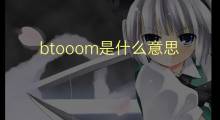boson是什么意思 boson的读音、翻译、用法
- 2023-06-02 02:16:37
- 77

1. 词释: Boson 是一种基本粒子,它们是构成物质的颗粒。Boson 有时也可以指代 Bose-Einstein 统计中的粒子。Boson 还可以是一些机器学习框架和工具的名称,如 PyTorch 中的 Torch.nn.Module 和 TensorFlow 中的 Keras API 等。
- The Higgs boson is a particle that gives other particles mass.
- In Bose-Einstein statistics, particles with integer spin (bosons) obey different rules than particles with half-integer spin (fermions).
- The Torch.nn.Module class in PyTorch is used to define neural network modules.
- Keras is a high-level neural networks API, written in Python and capable of running on top of TensorFlow, CNTK or Theano.
2. 研究历史: Boson 的概念最初由印度物理学家 Bose 提出,他在 1924 年发表的一篇论文中提到了“ Bose 粒子”,并引入了 Bose-Einstein 统计。随后,爱因斯坦在一封信中将其称为“ bosons”。在物理学和量子力学的研究中,boson 是至关重要的概念之一。
- Bose first proposed the idea of "Bose particles" in a 1924 paper, which introduced the Bose-Einstein statistics.
- In a letter to Bose, Einstein called these particles "bosons".
- The discovery of the Higgs boson, also known as the "God particle", was a major breakthrough in particle physics.
3. 物理性质:不同类型的 bosons 具有不同的物理性质,但它们都遵循 Bose-Einstein 统计。Bosons 具有整数自旋,并且可以聚集在同一量子态中,形成 Bose-Einstein 凝聚态。Bosons 还可以介导基本相互作用(如电磁相互作用和弱相互作用)。
- Photons are bosons with spin one and no mass, which mediate the electromagnetic force.
- W and Z bosons are massive bosons with spin one, which mediate the weak force.
- In Bose-Einstein condensation, bosons form a single macroscopic quantum state.
4. 应用领域:Bosons 在物理学、天体物理学、数学和工程学等领域中都有广泛的应用。在材料科学中,Boson 可以用于描述超流、超导等现象。在机器学习中,Boson 也是一些框架和工具的基础。
- Bosons are used to describe the behavior of superfluids and superconductors in materials science.
- In astrophysics, bosons have been proposed as a potential dark matter candidate.
- Machine learning frameworks like TensorFlow and PyTorch use boson-based APIs to define and train neural networks.
5. 拓展阅读:探究 Boson 的更多知识需要了解物理学、天文学、计算机科学等领域的知识。物理学家包括波尔、爱因斯坦、费曼等人都对 bosons 有着深刻的研究。对于对 Boson 概念感兴趣的人,可以阅读相关的科普书籍、研究论文等。
- Richard Feynman's "QED: The Strange Theory of Light and Matter" is a classic popular science book that explores bosons and other fundamental particles.
- The book "Bose-Einstein Condensation in Dilute Gases" by Pethick and Smith is a comprehensive introduction to the physics of Bose-Einstein condensation.
- The discovery of the Higgs boson is chronicled in the book "Smashing Physics" by Jon Butterworth.
未经允许不得转载
相关推荐
-

lgl是什么意思 lgl的读音、翻译、用法
词义:lgl并不是一个常见的词汇,也没有明确的词义。可能是某个企业、组织或人名的缩写。
2023-11-12342 1 -

btooom是什么意思 btooom的读音、翻译、用法
'btooom'是一个日本漫画、动画和游戏的名称。它是一个以生存游戏为主题的故事。
2023-08-30294 8 -

kick it是什么意思 kick it的读音、翻译、用法
含义:在口语中,“kick it”通常表示“放松、休息、闲逛”,也可以表示“开始(做某事)”。
2023-06-23340 6 -

frecuencia是什么意思 frecuencia的读音、翻译、用法
Frecuencia是一个西班牙语单词,翻译成英语为frequency。它可以指物理学上的频率,也可以指某一事件发生的次数。在英语中,frecuencia的缩写通常为freq。以下是从三个方面对frecuencia或freq进行的详细解释:
2023-07-19290 7 -

ichiko是什么意思 ichiko的读音、翻译、用法
,我将为您提供相关信息,我将为您提供相关信息:词性解析:'Ichiko'可以是一个名词,表示某个人名或者公司名字;
2024-05-01285 8 -

calao是什么意思 calao的读音、翻译、用法
词义:calaos是指一种热带鸟类,属于巨嘴鸟科,身体庞大,嘴巨大,大多分布于非洲和亚洲热带地区。
2023-11-21146 2 -

organon是什么意思 organon的读音、翻译、用法
词的意思:organon指的是一种工具或仪器,用于进行科学或哲学研究,特别是那些需要系统化和逻辑推理的研究。
2023-10-07158 4 -

tiniest是什么意思 tiniest的读音、翻译、用法
词义:tiniest是形容词,用来形容大小、数量、程度等极小、微小、细微的事物或物体。
2024-03-0153 9
- 3457人参与,13条评论
发表评论